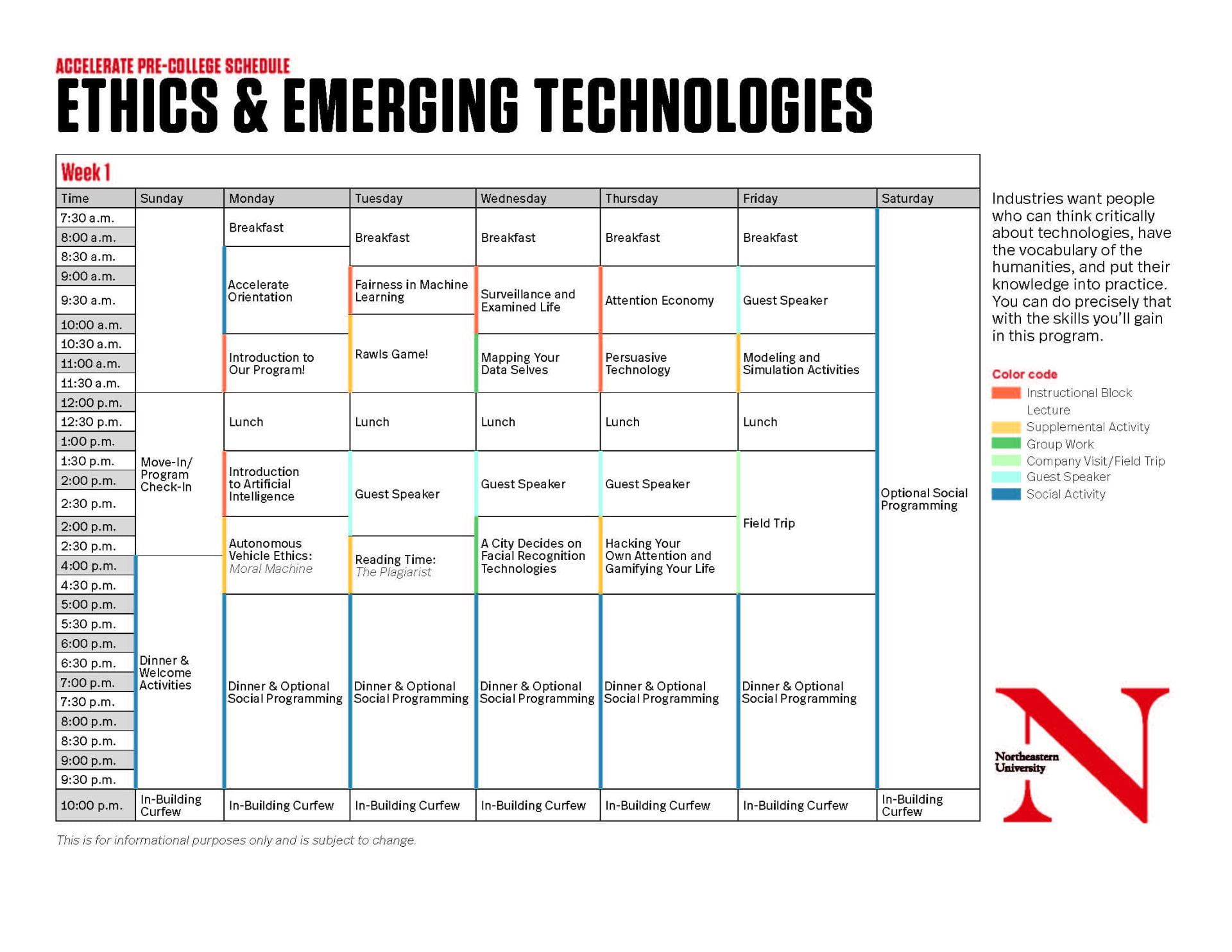Ethics & Emerging Technologies
Boston Campus Program—July 7-19, 2024
“Facebook Knows Instagram Is Toxic for Teen Girls, Documents Show”
“Two Killed in Driverless Tesla Car Crash, Officials Say”
“U.S. Says Kabul Drone Strike Killed 10 Civilians, Including Children”
“Minecraft Earth Is Coming: It Will Change the Way You See Your Town”
These headlines highlight the impact of digital technologies on our daily lives and our futures. Technologies such as artificial intelligence, machine learning, text mining, big data, and virtual and augmented reality can make our lives easier, safer, more pleasurable, and more connected; they can also exacerbate injustice, increase exploitation, and undermine our autonomy. In this class, led by a faculty member in philosophy, students will discover, debate, and apply ethical theories and tools of moral philosophy that can help us better understand and navigate the moral dimensions of these technologies. With academic collaborators and guest speakers from other disciplines in the College of Social Sciences and Humanities (such as English, international affairs, Africana studies, political science, and history), students will grapple with challenges that might include algorithmic bias, information “bubbles,” whether virtual reality is valuable, and whether artificial intelligence can engage in creative acts (such as writing poetry). They will learn how to create simple computer simulations that will enable them to test hypotheses about the questions they are most interested in.
An inside look at Ethics & Emerging Technologies
Learning Outcomes
Identify Emerging Technologies
Students will be able to identify and describe the fundamentals of at least three emerging technologies such as artificial intelligence, machine learning, big data, text mining, and virtual and augmented reality. They will be able to apply core principles of moral philosophy to evaluate the ethical implications of such technologies.
Recognize and Apply Interdisciplinary Perspectives
Students will be able to identify and compare approaches to evaluating the ethical impact of emerging technologies from at least three different disciplines in the college, such as history, English, philosophy, politics, international affairs, and economics.
Model Complex Human Interactions
Students will practice modeling interactions between individuals and will be able to describe how such models can be used to predict the outcomes of wide-scale interactions between people.
Practice Core Philosophical and Ethical Reasoning Skills
Students will learn how to construct valid arguments, how to reason inductively or probabilistically, and how to evaluate arguments based on these reasoning types.
Sample Schedule
For an in-depth look at your day to day activities during the two-week Ethics & Emerging Technologies program, click the link below to download our full sample schedule.
This is for informational purposes only and is subject to change.


Boston Student Life
Learn about the Northeastern campus, housing, dining, and social activities for Accelerate students.
Want to learn more?
To keep up to date with the latest program announcements, complete our inquiry form.
Program Tuition
The program tuition is $6,695. This includes: program tuition, course materials, housing, meals, and social activities. We strive to make our programs financially accessible. All admitted students will be considered for need-based aid, and our financial aid awards are typically in the form of scholarships or program discounts.
About Northeastern
Northeastern is a top ranking experiential research university that prides itself on academic rigor, a diverse and talented population of students and faculty, and a powerful learning model that combines the classroom experience with hands-on work experience.
Contact Us
Questions? Contact us at 617.373.2200 or precollegeprograms@northeastern.edu